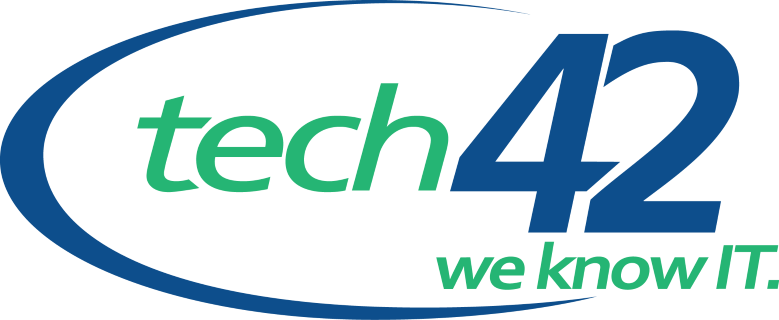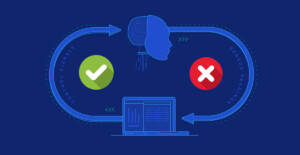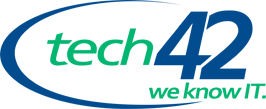Dental IT Solutions In Scranton & Wilkes-Barre for Enhanced Privacy and Protection
If you’re a dentist or any other practitioner in the medical business, you know that there are no cutting corners when it comes to compliance and patient data protection. Regulatory bodies like HIPAA have never been more strict and committed to conducting crackdowns on health institutions, with security non-compliance attracting 25% more fines than three years ago.
In particular, patient data bears a significant strain on medical staff and executives as it’s usually the most targeted by cybercriminals. Most executives typically find a hard time securing the best technology approaches to combat imminent threats.
Luckily, we’ve got a solution; at tech42, we leverage our immense experience, expertise, and resources to enhance safety and security for medical facilities, enabling practitioners to practice in a worry-free network. By leveraging modern and updated technologies, we guarantee maximal management and patient information storage while complying with all governing bodies’ regulations.
In this section, we’ll discuss:
- Top security concerns for dental practices
- Updated HIPAA security requirements
- Remote connectivity for telemedicine solutions
- Cybersecurity solutions to keep patient data secure
Top Security Concerns for Medical Practices
Regrettably, the healthcare industry spends significantly less on cybersecurity technologies and staff training than other regulated sectors. This makes it an easy target for cybercriminals, considering that protected health information (PHI) are worth millions of dollars in the black market. Here are the top five threats facing dental practices:
- Human errors. Health data security breaches resulting from human errors usually take the forms of privilege misuse, web application attacks, and lost/stolen assets. The good news is that such threats are preventable through staff awareness training.
- Accidental PHI exposure. Dental practice employees exposing protected health information accidentally is another top concern. Such mistakes usually take the form of losing or failing to secure devices with sensitive data, defying appropriate security standards, retaining confidential info after quitting a job, privilege misuse, etc.
- Ransomware. Most dental practice ransomware attacks often result from unintended information sharing or asset theft. The worst part is that most of these attacks succeed because victims are usually unaware of how to stop them.
- Insider misuse. This is where dental practice employees steal sensitive data or assets for malicious intentions, such as defrauding money or committing tax fraud. The solution is conducting a regular audit of all devices used by your staff.
Updated HIPAA Security Standards
The Health Insurance Portability and Accountability Act, HIPAA has clear-cut rules compelling dental practices and other medical institutions to protect sensitive health information’s security and privacy. In particular, HIPAA requires covered entities to comply with the following standards regarding electronic protected health information (e-PHI):
Risk Analysis and Management
HIPAA security rule requires covered entities to conduct a comprehensive risk analysis and device appropriate solutions for their findings. The process includes:
- Evaluating the likelihood and potential risk impact on e-PHI.
- Implementing the appropriate measures to mitigate the risks uncovered proactively.
- Documenting the preferred security measures and the rationale for choosing such actions, as required.
- Maintaining continuous security monitoring and protection.
Administrative Safeguards
- Designating or outsourcing security personnel to oversee the development and implementation of security measures.
- Implementing policies and procedures for controlling e-PHI access.
- Training all workforce on e-PHI security best practices and applying sanctions against staff members who violate the regulations.
- Conducting a periodic evaluation of how well the implemented security procedures meet HIPAA requirements
Technical Safeguards
HIPAA’s technical safeguard rule requires covered entities to:
- Implement technical policies allowing only credible personnel to access e-PHI
- Install software, hardware, and other procedural mechanisms for recording and monitoring all accesses to information systems containing e-PHI
- Install integrity controls ensuring that information systems cannot be altered or destroyed
- Implement technical security mechanisms protecting ePHI from unauthorized access and transmission over a network.
Remote Connectivity for Telemedicine Solutions
Thanks to the COVID-19 emergency, delta care providers have found an avenue for pushing telemedicine (long-distance patient care and monitoring) into the spotlight. Just like other healthcare providers, they’re hoping to prove the technology’s value so that telemedicine continues to exist even post-pandemic.
Below are some telemedicine solutions that dental practices can leverage to enhance remote care:
- Care Innovations. This is a telemedicine solution focusing on remote patient management. It provides medical institutions with management solutions to improve patient engagement, early treatment interventions, and patient education. It also provides data analytics solutions to help dentists gain more insights into their patients’ conditions for better care.
- American Well. The telemedicine platform provides patient-facing apps, telemedicine tablets, video visit technologies, and mobile software development kits, allowing practices to interact one-on-one with their patients via a video for specialized remote care.
- Phillips Healthcare. If you’re looking for a telemedicine solution to help in [programming goals setting, recruiting patients, and streamlining clinical workflow, Phillips Healthcare has got you covered. What’s more, the platform has remote monitoring capabilities, including two-way video technology.
- iDoc Telehealth. This is the go-for platform for remote staffing, eConsultation, and telemedicine infrastructure solutions. Even better, iDoc provides medics with tools to develop their own telemedicine systems.
Cybersecurity Solutions to Keep Patient Data Secure
As we mentioned previously, failing to protect patient data attracts exorbitant HIPAA fines that may take a toll on your finances. Good news: you can avoid the potential loss by implementing the best cybersecurity solutions in your practice. These include:
Encrypting Sensitive Patient Data
In line with HIPAA’s access control requirement, you want to encrypt sensitive patient data to block unauthorized access. It may file like a nuisance at first, but if you’re committed to barring hackers from stealing classified information, encryption is the right route to take.
Implementing a Data Security Policy
You need a rock-solid policy for dealing with a cyber threat attempt on your e-PHI. That helps create a clear-cut roadmap for protecting sensitive data and recovering from cyber risk aftermath.
Using Strong, Unique Passwords
All your information systems should be protected with strong passwords that are hard to guess. And by that, we mean you use passwords with at least eight characters consisting of uppercase & lowercase letters, numbers, and special characters.
Leveraging Multi-Factor Authentication
Passwords are never enough as far as bolstering your dental practice’s security posture is concerned. You also want to implement additional protection mechanisms such as fingerprints, facial recognition, voice recognition, verification codes, etc.
Training your Workforce
As technology keeps improving, so does hackers device new techniques of launching their attacks. The only way to keep protected throughout is to engage your employees in periodic training to keep up with updated technologies and data management.
Tech42 Can Help With All Your Dental IT Solutions In Wilkes-Barre & Scranton
Let’s face it; securing patient data isn’t child’s play – it requires first-class expertise and hefty investment in resources and time. Here’s a dilemma where you have no choice but to protect your patients’ data while at the same time attending to them whole-heartedly. And you know what they say about killing two birds with one stone – it just can’t work.
We can help protect your electronic patient health information from external intrusion while you devote yourself to caring for your patients. We offer a rich range of services, including managed IT support, cloud computing, software development, cybersecurity, and more. Contact us today, and see how we can leverage our dental IT solutions to enhance privacy and protection.







